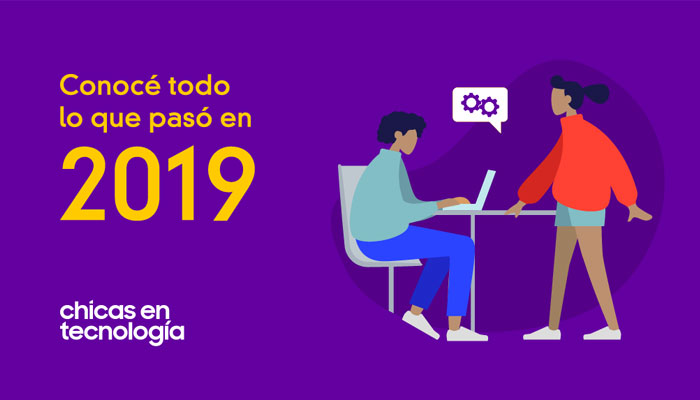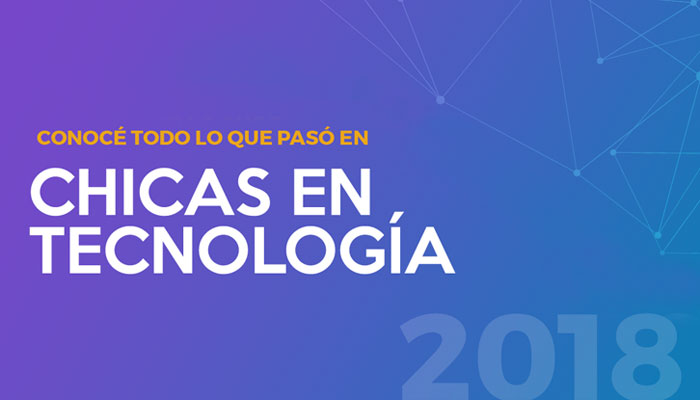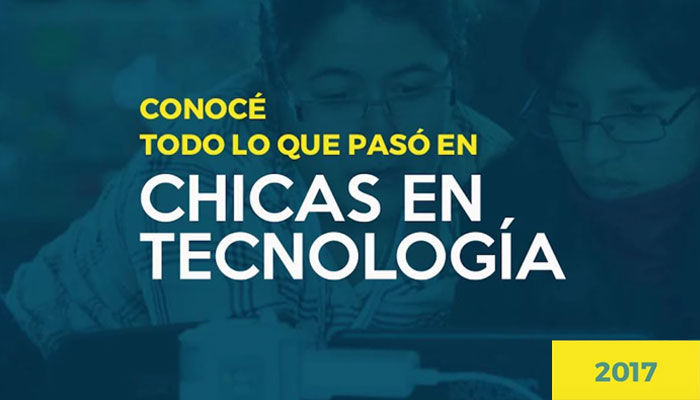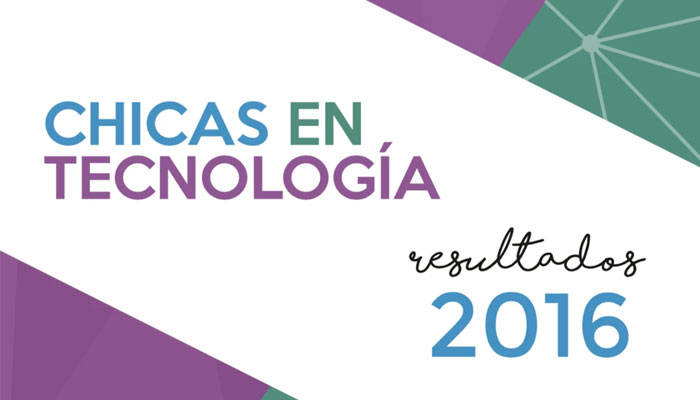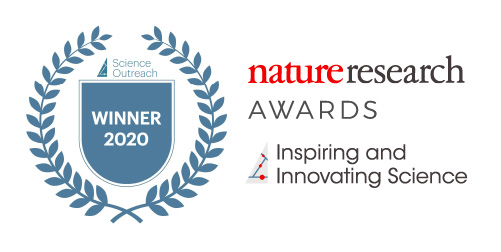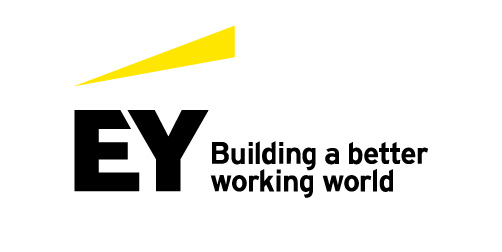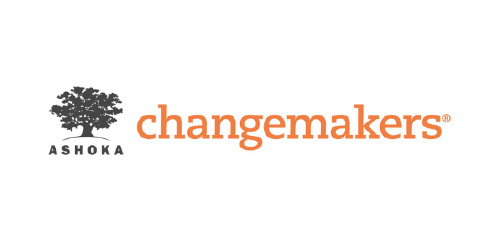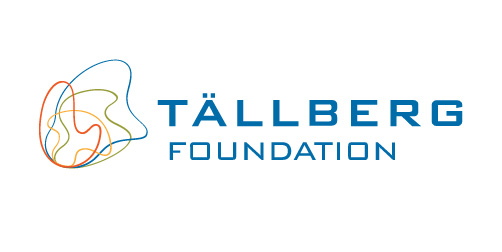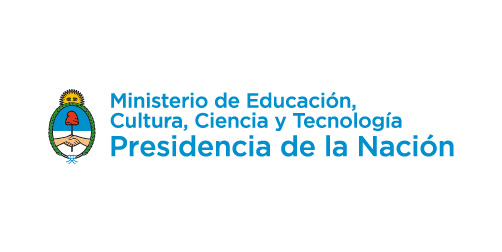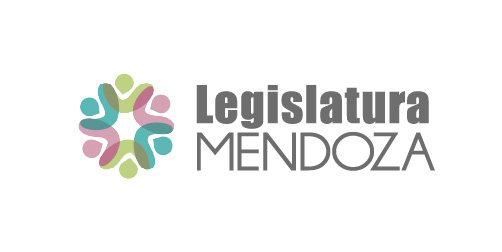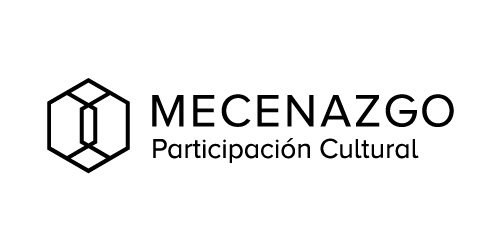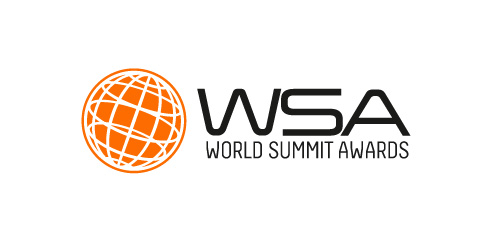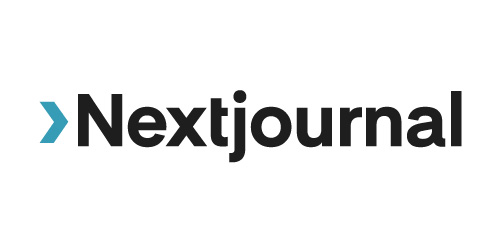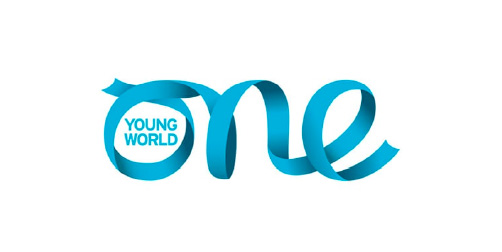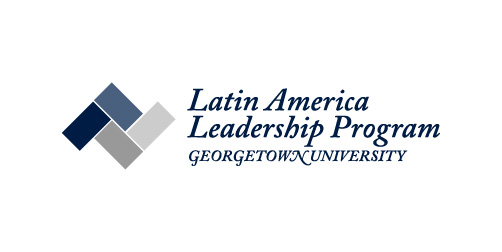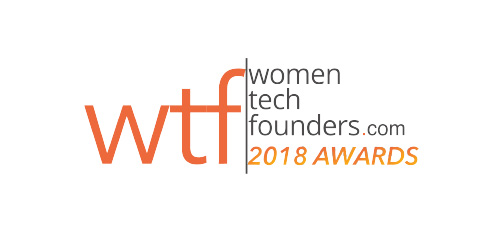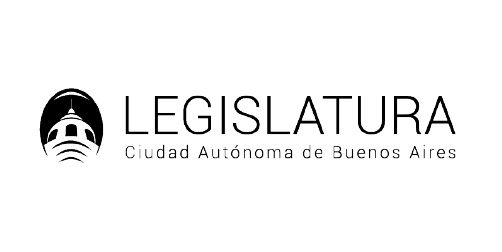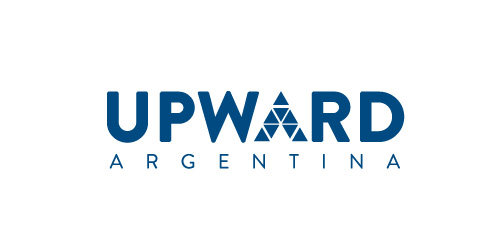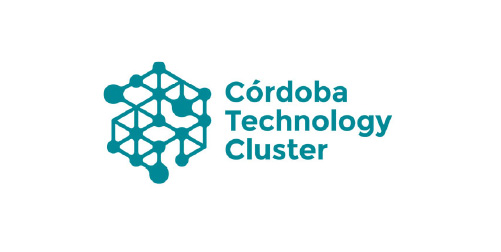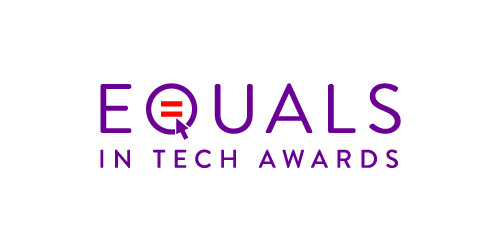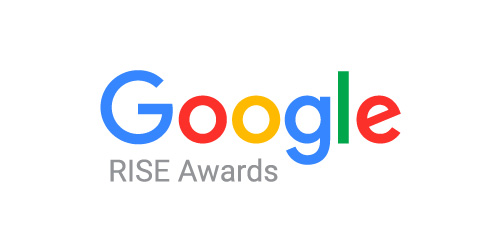We are a non-profit, civil society organization in Argentina, which since 2015 has sought to reduce the gender gap in technology in the region. We motivate, train, and accompany the next generation of women leaders in technology.
There is a gender gap in science- and technology-related disciplines in Argentina, in the region, and in the world.
At a regional level, internet access and computer literacy are current challenges as rights to be guaranteed and necessities, taking into account that technology is an expanding area.
In this context, Latin American women are at a disadvantage due to having greater social and cultural barriers.
According to research in Argentina: STEM degree (Science, Technology, Engineering, and Mathematics) enrolments are made up of only 33% women, and in degrees linked to programming this number drops to 16%. While gender stereotypes are constructed at an early age, the interest in developing oneself in these areas becomes defined in adolescence.
In an age where technology is transforming economies and societies, women’s voices and perspectives need to be included.
We contribute to 7 of the Agenda 2030 Sustainable Development Goals (SDG), and we adhere to the principles of participation and open information of the Open Government policies.
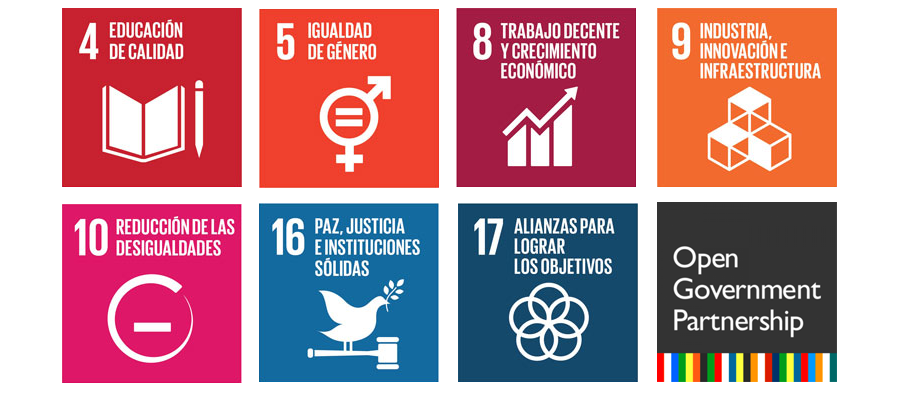
Chicas en Tecnología bases its programs
and initiatives on 6 pillars:
Diversity and Equity
We promote the empowerment of adolescent girls, working an integral and systemic focus which involves their communities. We believe that diversity is the motor of innovation with social impact. All voices need to be heard.
EDUCATION
We co-create dynamic programs and initiatives which are contextualised to respond to the needs and experiences of the regional context, which combine: technical-technological skills, soft skills, and impact skills
Technological innovation
We accompany the process of digital transformation, with integrated focus and sustainable solutions using technology as a medium. We support the use of sustainable technologies, research, and innovation, placing special emphasis on equitable access for everyone.
Entrepreneurship
We coordinate with methodologies of the technological entrepreneurship ecosystem, with the objective that teen girls consider technology as a partner for different initiatives that impact their realities. They go from being users to creators.
social impact
We promote the creation of sustainable communities and cities through technological solutions with social impact created by teens who promote new economic, social, educational, and environmental links
Leadership
We promote new ways of leading in technology, experimenting and working in agile and diverse teams. Furthermore, we seek equality in leadership opportunities at all decision-making levels.
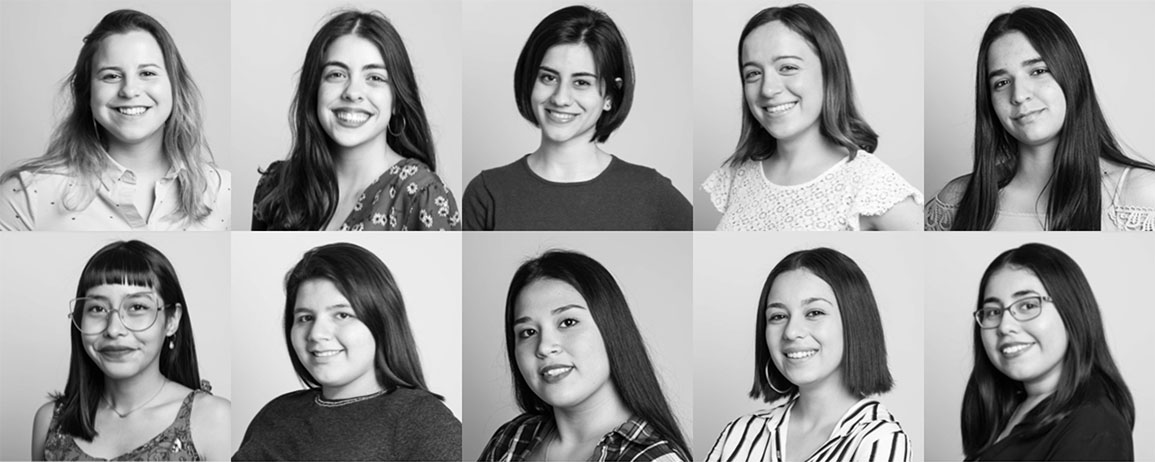
women participated
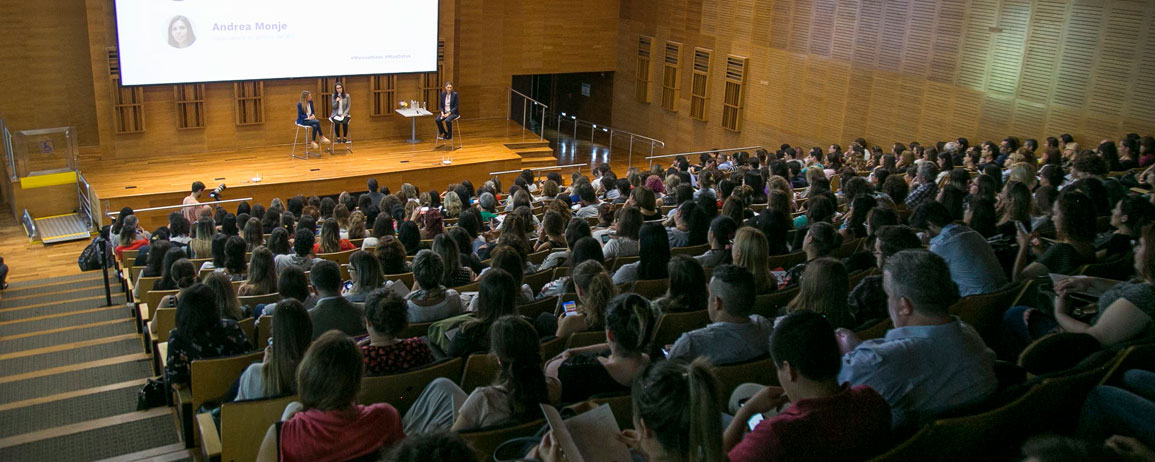
the region involved
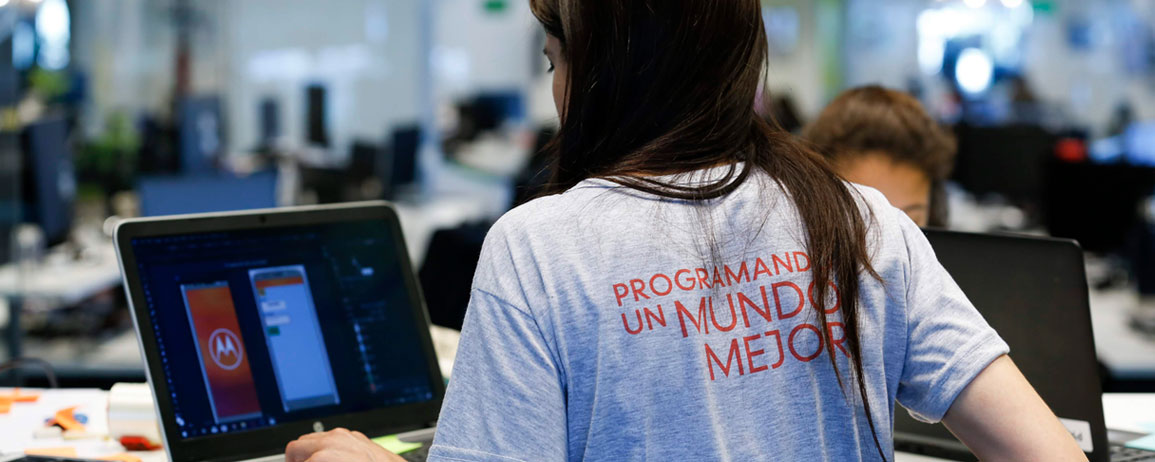
with social impact created
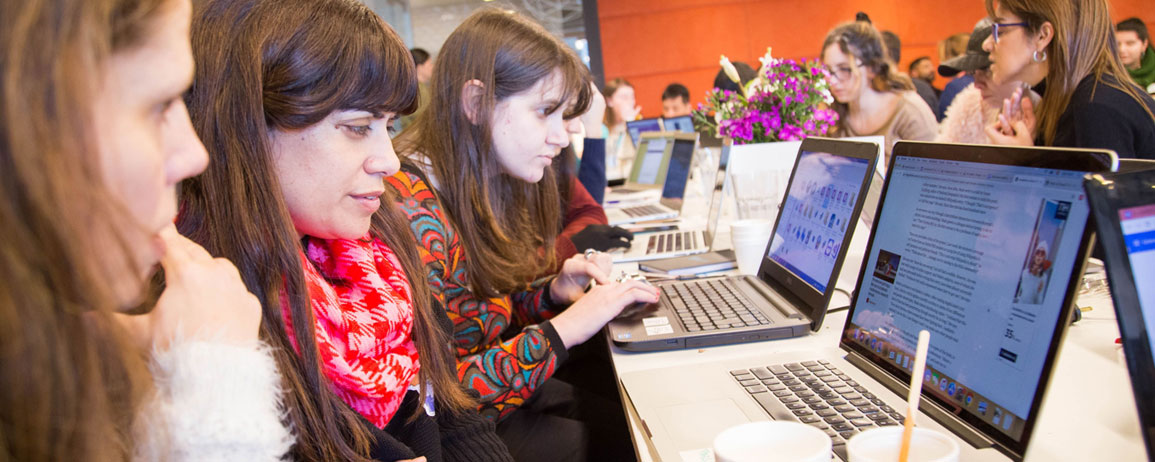
on social media
SCOPE
We cross borders to reduce the gender gap in the region and to impact the world.
Our programs and initiatives are based on international agreements and methodologies endorsed by the entire region to guarantee its applicability in each allied country
We have validations at an international level: SAM, Duns, Ncage – Federal Government of the USA PADOR – Cooperation Office of the European Union
Notable awards and recognition
We have an interdisciplinary team
Professionals from the field of technology, education, entrepreneurship, design,and communication who work as permanent staff, have consulting roles, and complete volunteer work. We have a dynamic structure that responds to the objectives proposed by the organization.

